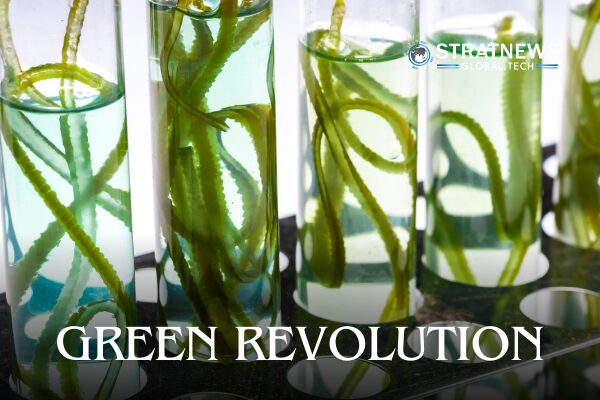Sydney Startup Algenie Bets on Algae to Power a Greener Industrial Future
Sydney entrepreneur Nick Hazell believes the key to a sustainable future lies in one of the planet’s smallest organisms — algae. His startup, Algenie, is developing a new generation of photobioreactors designed to grow algae efficiently and affordably, paving the way for large-scale carbon removal and fossil fuel alternatives.
Reinventing Industrial Chemistry with Algae
Algenie’s innovation centres on its patented helical photobioreactor, which Hazell says could make algae cultivation scalable and cost-effective for industries such as plastics, biofuels, and food production. The design uses thin LED lights that shine through narrow channels, ensuring algae receive consistent light for rapid growth — doubling in size within hours.
“Algae is the reason we have a liveable planet,” Hazell explained. “Most of the oxygen we breathe comes from algae. Everyone talks about forests, but algae do the heavy lifting.”
By combining efficient lighting with a low-cost helical design, Algenie has created a system that can be produced using continuous manufacturing processes similar to those used for pipes and gutters. This approach dramatically lowers production costs.
“When you combine highly productive algae with low-cost helices, cheap LEDs, and renewable energy, you get a system that can compete with crude oil,” said Hazell. “That’s the game-changer.”
Competing with Crude Oil
Algenie’s goal is to reduce the cost of growing algae to between $1 and $2 per kilogram, making algae-based feedstock competitive with petrochemicals. The company sees applications across 20 different industries, from sustainable fuels to biodegradable plastics and high-value compounds like astaxanthin — a pigment used in aquaculture and nutraceuticals.
At the University of Technology Sydney (UTS), researchers are supporting the effort. Associate Professor Mathieu Pernice, from UTS’s Climate Change Cluster, said the collaboration could help turn algae diversity into large-scale commercial solutions. “With Algenie, we can tap into this diversity to make a difference in CO2 sequestration,” Pernice said.
Building a Biotech-Based Economy
Hazell envisions a future where millions of Algenie’s photobioreactors, powered by renewable energy, supply the raw materials for a biotech-driven economy. Unlike traditional agriculture, algae cultivation does not require farmland, allowing space to be restored for nature.
“This is the definition of a game-changer,” Hazell said. “It’s something that could completely change how we make things — supporting both economic growth and sustainability.”
Algenie’s next step is to scale up its technology from laboratory demonstrations to container-sized pilot modules, ready for deployment at industrial sites.
with inputs from Reuters


